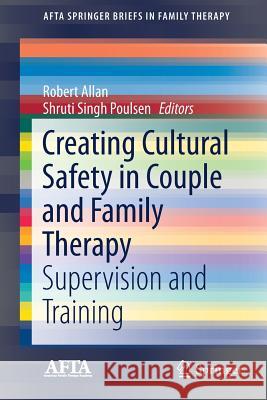Creating Cultural Safety in Couple and Family Therapy: Supervision and Training » książka
topmenu
Creating Cultural Safety in Couple and Family Therapy: Supervision and Training
ISBN-13: 9783319646169 / Angielski / Miękka / 2017 / 104 str.
Kategorie:
Kategorie BISAC:
Wydawca:
Springer
Seria wydawnicza:
Język:
Angielski
ISBN-13:
9783319646169
Rok wydania:
2017
Wydanie:
2017
Numer serii:
000475202
Ilość stron:
104
Waga:
0.18 kg
Wymiary:
23.39 x 15.6 x 0.66
Oprawa:
Miękka
Wolumenów:
01
Dodatkowe informacje:
Wydanie ilustrowane











